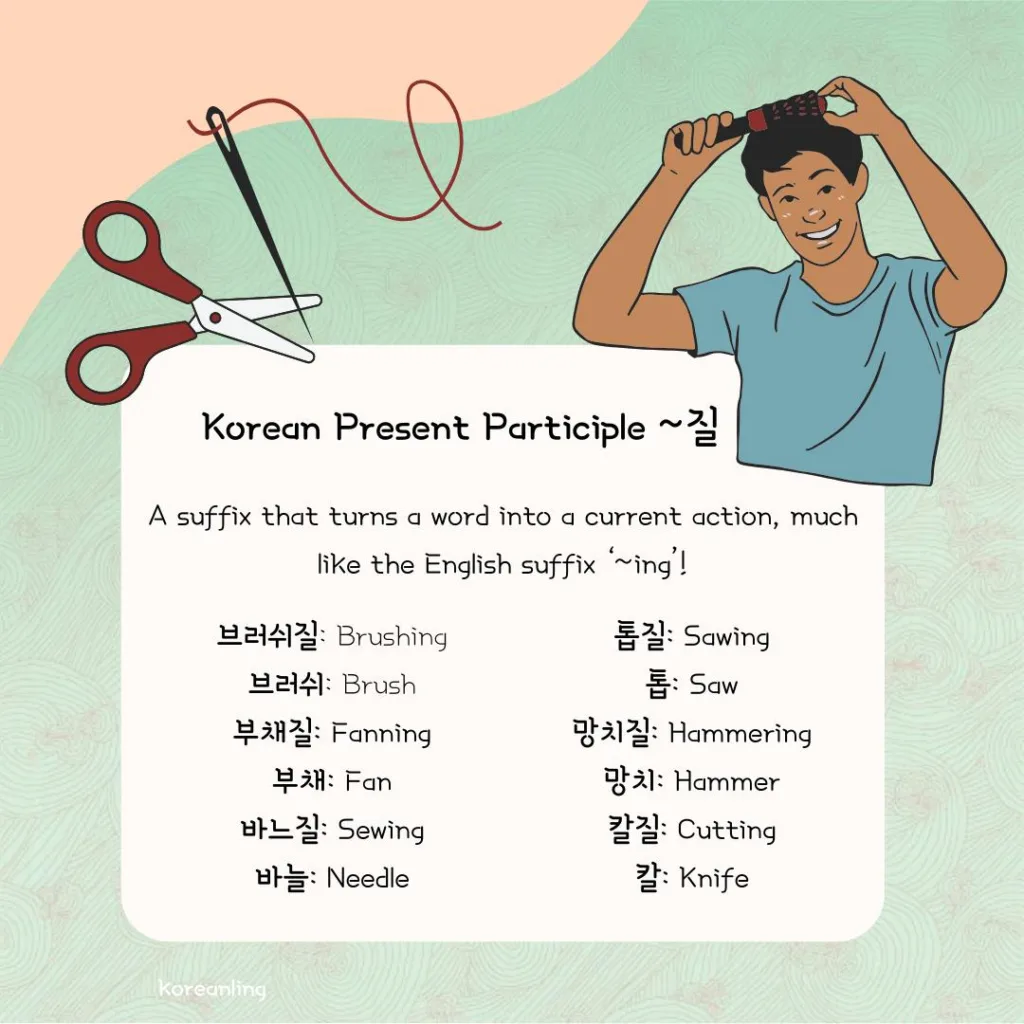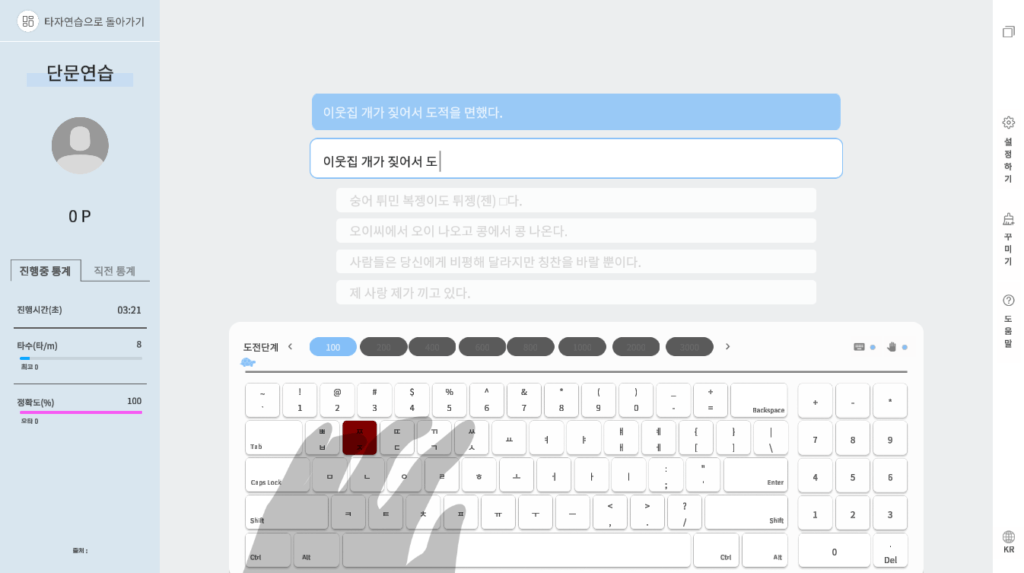Time for some quick grammar! The Korean present participle ‘~질’ can be attached at the end of a word and attaches the meaning of ‘act of using/doing’.

What is a Korean Present Participle?
A present particle is basically a suffix that turns a word into a current action, much like the English suffix ‘~ing’! The specifics in the linguistics can go pretty in-depth and might be a bit confusing but depending on the word and the context it’s in adding ‘~ing’ can change a verb to act like a noun, or adjective, or change the verb tense.




